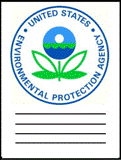United States Environmental Protection Agency

United States Environmental Protection Agency: Publications
Document Type
Article
Date of this Version
2014
Citation
Published in Social-Ecological Resilience and Law, ed. Ahjond S. Garmestani and Craig R. Allen (New York: Columbia University Press, 2014).
Abstract
The concept of sustainability has been widely embraced by society and in environmental law and policy as a measure to ensure a heritage of economic viability, social equity, and environmental stewardship. In a large number of statutes, Congress and many state legislatures have begun to adopt the goals of protecting a natural resource legacy and promoting sustainable use of the nation's valuable natural resources. However, many of the statutes enacted have been virtually unenforceable due to lack of standards and guidance on reconciling complex and often competing priorities. Moreover, reports continue to surface regarding such problems as diminishing natural resources, freshwater supplies, and biodiversity (World Wildlife Fund 2008). These undesirable impacts illustrate that contrary to the stated goals of existing law, the way we do business and consume resources remains unsustainable (Flournoy and Driesen 2010). Hence, while it is clear that the ideals of sustainability are widely supported, the shift toward this paradigm is essentially unrealized.


Comments
U.S. government work.